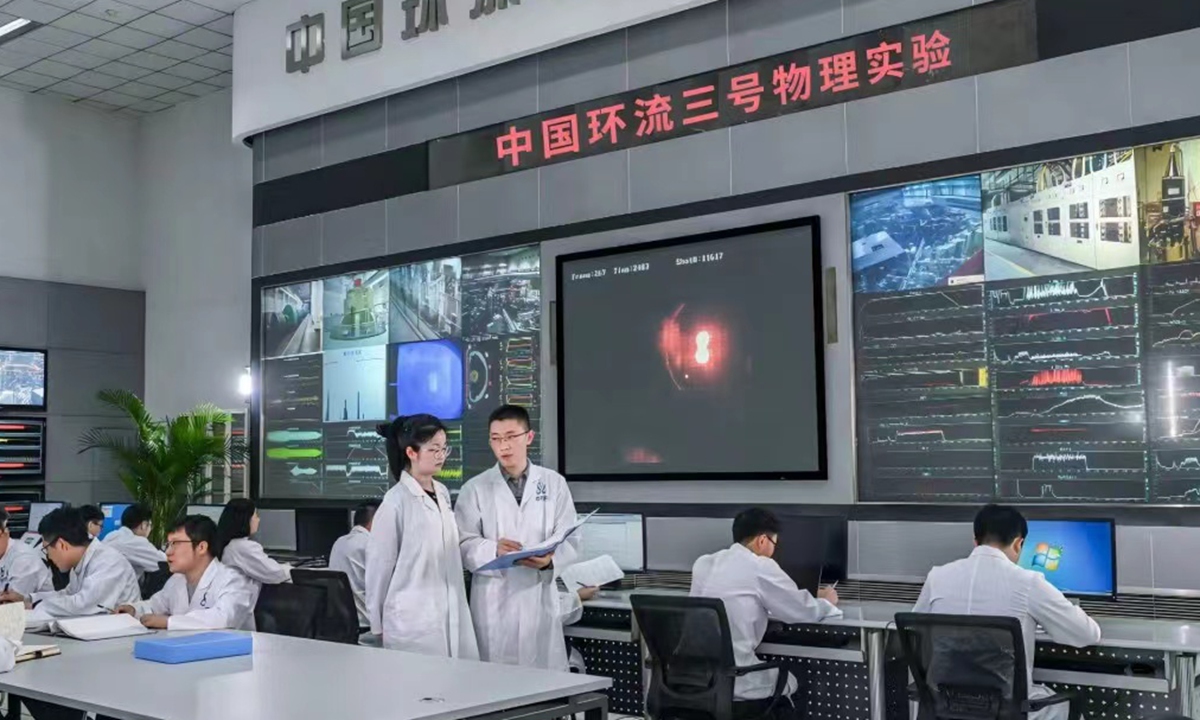
Researchers work at the control center of the HL-3 at the Southwestern Institute of Physics (SWIP). Photo: Courtesy of SWIP
China's Ministry of Science and Technology reported on Saturday detailed cases of academic misconduct in national key research and development (R&D) projects and announced strict measures against researchers involved in plagiarism and unethical lobbying in project applications.
The implicated researchers will face punitive sanctions, including bans from government-supported research activities and having their names added to an academic dishonesty database.
Experts noted that these measures reflect the Chinese government's zero-tolerance toward academic misconduct. They serve as a clear warning to scientific researchers and will help ensure that scientific innovation remains both legitimate and properly regulated.
The published cases included Zhao Ran from China Agricultural University, Zhang Tao from PinYuan (Suizhou) Modern Agriculture Development Co, Zhang Xiaocheng from Yongjiang Laboratory in East China's Zhejiang Province, and Chen Haotai from the Lanzhou Veterinary Research Institute, Chinese Academy of Agricultural Sciences, according to the announcement.
Each was found to have plagiarized content in their project proposals, copying from previously funded projects, leading to the termination of their applications and a three-year ban from participating in government-funded research. Their misconduct has been recorded as a serious breach in the research integrity database.
In addition, Sun Beicheng, a former researcher at Nanjing Drum Tower Hospital, was found guilty of trying to influence the evaluation by contacting potential reviewers for favorable treatment, leading to the termination of his project evaluation and a seven-year ban from government-funded research.
Academic misconduct undermines scientific, ethical and legal standards, and is detrimental to the country's long-term sci-tech advancement, Sun Guorui, a professor specializing in intellectual property studies at the Law School of Beihang University, told the Global Times on Sunday.
"Public exposure of those involved sends a strong warning and acts as a future deterrent against such behavior," Sun Guorui said.
According to the announcement, the ministry has instructed the involved institutions to enforce research integrity measures and complete rectification by a set deadline, urging researchers to uphold scientific standards and integrity in academic research and strengthen their sense of responsibility to contribute to achieving high-level technological self-reliance.
Sun Guorui highlighted the government's continuous efforts to encourage innovation while preventing breaches of research ethics, noting this policy is crucial in guiding the future of the country's science development, ensuring the legitimacy and regulation of research innovation.
Global Times




